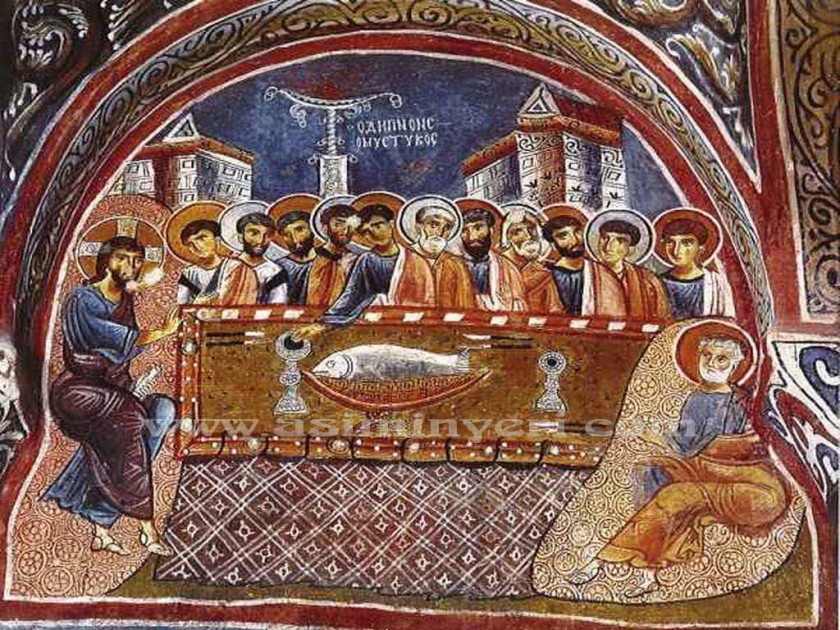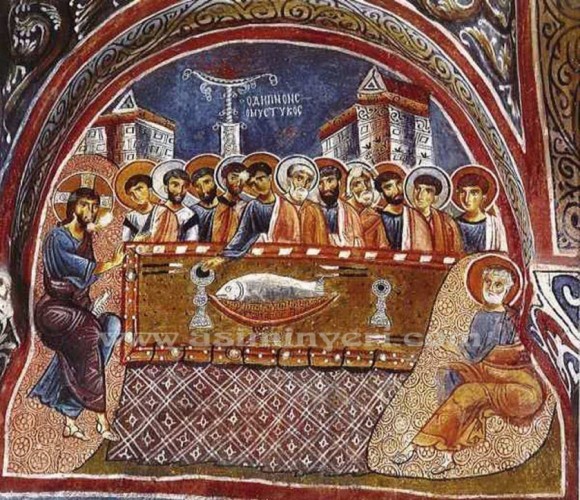- Binbirdirek Mah. Klod Farer Cad. Güven Apartmanı No:2/302 Fatih/İstanbul, Turkey
- Open 08:00-22:00: Monday - Sunday
- drop us an email info@istanbulguideservices.com
- 24/7 service +90 555 6022454
tags: Jewish biblical Turkiye The Early Christian


Ancient Jewish History and the Rise of Christianity
- **63 BCE: Pompey Makes Israel a Roman Vassal State**
In 63 BCE, Roman general Pompey conquered Jerusalem, turning Israel into a vassal state under Roman control.
- **31 BCE: Augustus Becomes Emperor**
Augustus, the first Roman Emperor, ascended to power in 31 BCE, marking the beginning of the Roman Empire.
- **15 BCE: Birth of James, Brother of John**
James, the elder brother of John the Baptist, was born around 15 BCE.
- **4-3 BCE: Death of Herod the Great and Temple Construction**
Herod the Great, known for his extensive building projects including the expansion of the Second Temple in Jerusalem, died around 4-3 BCE.
- **5-4 BCE: Birth of Jesus**
Jesus of Nazareth, the central figure of Christianity, was born around 5-4 BCE.
- **3-10 CE: Birth of John the Baptist**
John the Baptist, a significant prophetic figure in Christianity, was born between 3-10 CE.
- **6 CE: Judea Becomes a Roman Province**
In 6 CE, Judea was reorganized into a Roman province under direct Roman rule.
- **30-33 CE: Pontius Pilate Governs Judea**
Pontius Pilate served as the Roman governor of Judea from 26-36 CE. During his tenure, Jesus was crucified around 30-33 CE.
- **30-33 CE: Crucifixion and Resurrection of Jesus**
Jesus was crucified, and according to Christian belief, he resurrected three days later, commissioning his apostles to spread his teachings.
**Early Christian Expansion and Conflicts**
- **30-37 CE: Spread of Christianity in Israel**
After Jesus' resurrection, the apostles and disciples began spreading Christianity within Israel.
- **35 CE: Conversion of Paul**
On the road to Damascus, Paul experienced a vision of Jesus and converted to Christianity. He later became a key figure in spreading Christianity through his letters and missionary journeys.
- **37 CE: Stoning of Stephen**
Stephen, one of the early Christian deacons, was martyred by stoning in 37 CE, prompting a wider spread of the Christian mission beyond Israel.
- **42 CE: Martyrdom of James, Brother of John**
James, the brother of John, was martyred around 42 CE.
- **47-60 CE: Paul’s Missionary Journeys**
Paul undertook multiple missionary journeys, spreading Christianity throughout the Roman Empire and writing letters to various Christian communities.
- **60-62 CE: Paul and John in Rome**
During this period, both Paul and John were active in Rome. Paul was eventually imprisoned.
- **64 CE: Persecution of Christians in Rome**
Under Emperor Nero, Christians faced severe persecution in Rome. Both Paul and Peter were martyred, while John fled to Ephesus.
- **66-73 CE: Jewish Revolt and Temple Destruction**
The Jewish revolt against Roman rule culminated in the destruction of the Second Temple in 70 CE, leading to significant changes in Jewish and Christian communities.
**Formation of Christian Canon and Persecutions**
- **70 CE: Writing of the Gospel of Mark**
The Gospel of Mark, one of the earliest accounts of Jesus' life, was written around 70 CE.
- **80-90 CE: Writing of the Gospels of Matthew and Luke**
The Gospels of Matthew and Luke were composed between 80-90 CE, further documenting the life and teachings of Jesus.
- **81-90 CE: Domitian’s Persecution of Christians**
Emperor Domitian's reign saw increased persecution of Christians, who refused to participate in the imperial cult.
- **90 CE: Writing of the Gospel and Letters of John**
The Gospel of John and several epistles were written around this time, offering a unique theological perspective on Jesus' life and teachings.
- **94-96 CE: Writing of the Book of Revelation**
The Book of Revelation, attributed to John, was written during his exile on the island of Patmos. This apocalyptic text concluded his writings.
- **96-100 CE: Death of John in Ephesus**
John spent his final years in Ephesus, where he continued to lead the Christian community until his death around 100 CE.
**Cultural and Religious Context**
- **Temple Tax and Jewish-Christian Tensions**
After the destruction of the Temple, the imposition of the Temple tax became a point of contention. Jews continued to pay the tax, while Christians, who saw themselves as a distinct group, did not, leading to complaints against them.
- **Essenes and Early Christian Figures**
The Essenes, a Jewish sect focused on ritual purity and community living, influenced early Christian figures like John the Baptist and his family, who were connected to the Essenes.
- **Imperial Cult and Christian Resistance**
The Roman imperial cult required citizens to worship the emperor, a practice Christians resisted, leading to further persecutions. Jewish exemptions from these practices created additional friction with the burgeoning Christian movement.
- **Legacy and Influence of Early Christian Texts**
The collection and canonization of Christian texts, including the Pauline epistles and the Synoptic Gospels, were crucial in defining Christian doctrine and separating it from Jewish traditions.
This timeline highlights the critical events and figures that shaped the development of early Christianity and its interactions with Judaism and the Roman Empire.
Wed, Jul 3, 2024 2:45 PM
Comments (Total 0)